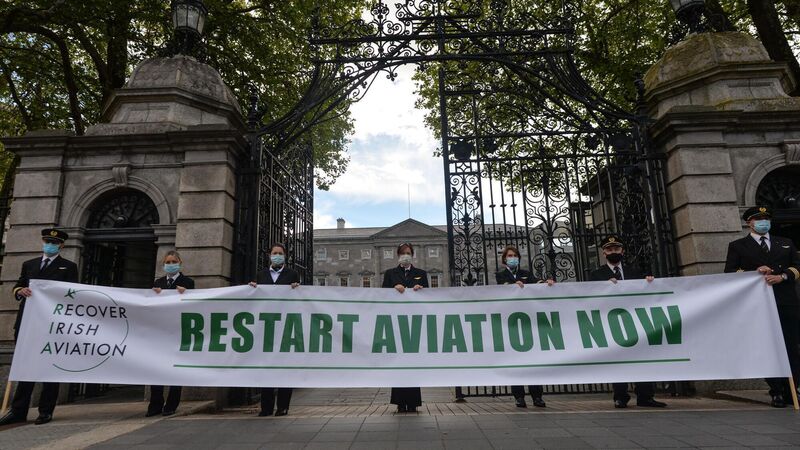Letters to the editor: Pandemic is far from over — so leave the travel advice to the experts

Pilots are anxious about their industry, but we should also ask the views of groups such as cabin crew — who would be in close contact with passengers — and heed the expert advice of Nphet on Covid-19. Picture: PA
The Irish aviation industry has been savaged by the effects of the Covid-19 pandemic and the restrictions imposed by the Irish Government.
A group, Recover Irish Aviation, fronted by the Irish Air Line Pilots’ Association, has been front and foremost in its outspoken criticism of the Government, the chief medical officer and Nphet.











